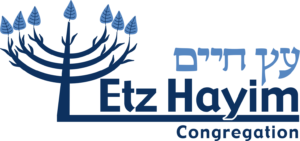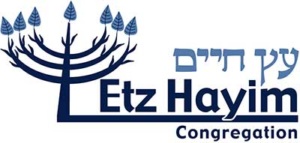Instructions for counting the omer are found on our Omer Overview Page. You can find the specific blessing for today at chabad.org.
We’re dedicating a new Sefer Torah on the first day of Shavuot. In honor of this joyous occasion, we’re using the counting of the Omer to take a whirlwind trip through the Torah
Today’s portion is Beshalach from the book of Exodus. Today’s insight was generously provided by Joel P.
Verses of note: Exodus 13:17 – 17: 16
What caught your attention in this parashah?
Boy is Beshalach exciting- the freed slaves rushing from Egypt, following a fiery cloud, chased by chariots, through a windswept corridor of waves, battling for water with local tribes like the Amaleks. But what caught my attention was the last action taken by the Jewish slaves before escaping. Not singing Egyptian anthems teary eyed like the German refugees on the St Louis or settling a score or two with a particularly cruel overseer. But, even as they have no time to bake a few loaves of bread, stopping to dig up Joseph’s bones. Which were buried enough generations ago that the pharaoh and presumably a lot of others “did not know Joseph”, let alone his unusual last request.
This caught my attention on several levels. The strangeness and – in retrospect- prescience of Joseph’s highly inconvenient and unorthodox request. Essentially “bury me now with my wife and kids and colleagues, but at some point in the distant future, reunite me with my forefathers, when – not if- G*d plans us all to return under whatever good or bad circumstances are in play at that time”. And the strangeness of the escaping Jews disobeying a dozen rules against carrying a dead person for what might be a while (ultimately 40 years presumably). Let alone honoring the request of a leader, who, in retrospect at least landed them in generations of miserable slavery. Finally this caught my attention on a personal level because last month my parents were dealing with tissue of where to be buried- abandoning the plans to be buried with my mother’s parents in long ago purchased plots in England and choosing instead to be buried in Florida, where my mother had chosen to die, knowing it was where my father wanted to be after she was gone and where her children would more easily visit.
What’s one explanation for these verses?
The leadership- or maybe the whole body of slaves’- desire to confirm that the time for the escape and even those awful generations of servitude were part of the divine plan. For in digging up and carrying those bones, they were recalling that Joseph, famous for his prophetic skills, had instructed the Israelites not to bury him immediately in the relatively recently abandoned homeland promised to Abraham. But to wait – and to dig him up “and then you must carry my bones up with you from this place” only once “God will surely come to your aid.” Exodus 13:15. Joseph is known for his faith in the divine plan and what greater faith than that you are OK being buried in the wrong place, leaving it to God to decide when you get to be moved home. Joseph had faith that he would not always moulder in his grave. Somehow Joseph, a Jewish John Brown, had known that he was part of a larger plan that the slaves would be free and would at some time be marching out in the army of the Lord.


